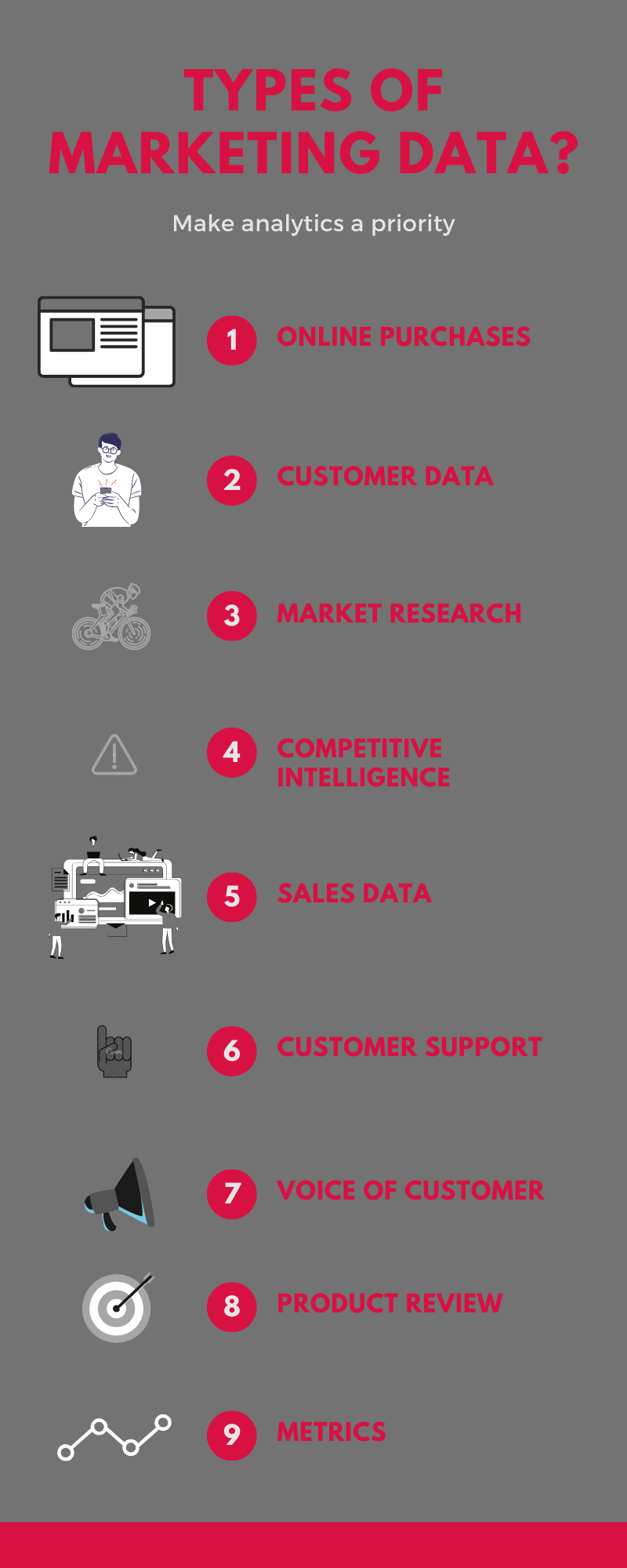In 2020, Marketing leaders understand the evolving nature of Data Management Platforms. Yet, a majority of these leaders have a tough time executing their strategies. This is largely attributed to three factors –
- Lack of Time
- Inadequate tools and processes
- Talent Attrition
Even for Marketing teams who manage to tackle these challenges have to face a serpentine task to justify their increased data and analytics budget. It’s new, but a straightforward priority – it’s ‘Privacy’.
To better understand the importance of Data Privacy in today’s Digital Marketing campaigns, you should know the basics of Marketing Data.
This primer on Marketing Data is a foundation for building a strong centric-centric Digital Marketing roadmap.
What is Marketing Data?
According to Gartner, Data and Analytics have become the foundation of Marketing.

Marketing data is the pool of information extracted from various touchpoints and interactions between a customer and a brand. This data drives Marketing analytics to evaluate the effectiveness of any Marketing campaign and justify the ROI of these campaigns. Without analytics, there is no ROI; without data, there is no analytics.
Marketing data refers to information used to improve products/services, sales, promotion, pricing, distribution, and branding. Common types of Marketing data include Customer Data, Competitive Intelligence, Market Research, Commercial Transactions, Customer Feedback, Preferences and Interests, and other Marketing metrics.
Marketing has evolved and experienced a fundamental shift over the years. Gone are the days when marketers used to work on their instincts or gut feeling. In modern times, marketers resort to analyzing customer data as a reliable source of information. Often, many marketers struggle to adopt this data-driven approach. They do not know how to use relevant data. Many are not aware of the appropriate tools to collect, analyze and compare data to generate useful insights.
Read more: Utilizing Marketing Data to Create Emotional Customer Loyalty
Marketing Data and Its Effectiveness
In this blog, we answer your questions related to identifying and tracking the right data types. It mentions four important data sources to track to gain relevant insights.
1. Website
Every company has a website, which is the face of the company. The company website is the first customer touchpoint. Any new or potential customer will visit the company website before making a purchase decision. However, it is essential to track website data to learn about the customer.
Useful information includes website visitors, page views, traffic sources, and bounce rates. These data gives you information about who visits your website, where they come from, and for how long they stay on the website. A good rate for these metrics varies by company and industry. Google Analytics is a useful tool to study these metrics. Create a Google account, add a tracking code on your website and you are ready to gain valuable insights.
2. Social Media
Social Media Marketing becomes worthwhile when you engage with your followers consistently. Social media provides a vast amount of data not only for your profile but for the performance of your content too. To track user engagement, you may check the number of likes, shares or comments on your posts. A narrowed approach includes the study of demographics such as gender, age, location, etc. This data is useful for creating personas to deliver targeted content.
3. Lead Generation
How well does your content generate leads for your company? The effectiveness of your content is measured in terms of the number of leads. Inbound Marketing strategies focus to convert Marketing content into potential customers. People engaging with your content are the prospective customers who can be converted into loyal customers. CRM systems track information such as email opens, conversion rate, lead generation, etc.
4. ROI
What is the use of analyzing data? These metrics help you understand the return of investment for your business. Revenue generated through your Content Marketing efforts will improve your decision-making strategies and enable you to invest time and resources on important activities to achieve organizational growth.
Knowing what type of Marketing data is useful for your business not only helps you make well-informed business decisions. It also helps you know your clients better. Tracking Marketing data helps business reimagine their Marketing strategies.
Read more: Synchronization Is Key to Maximizing Marketing Data ROI











